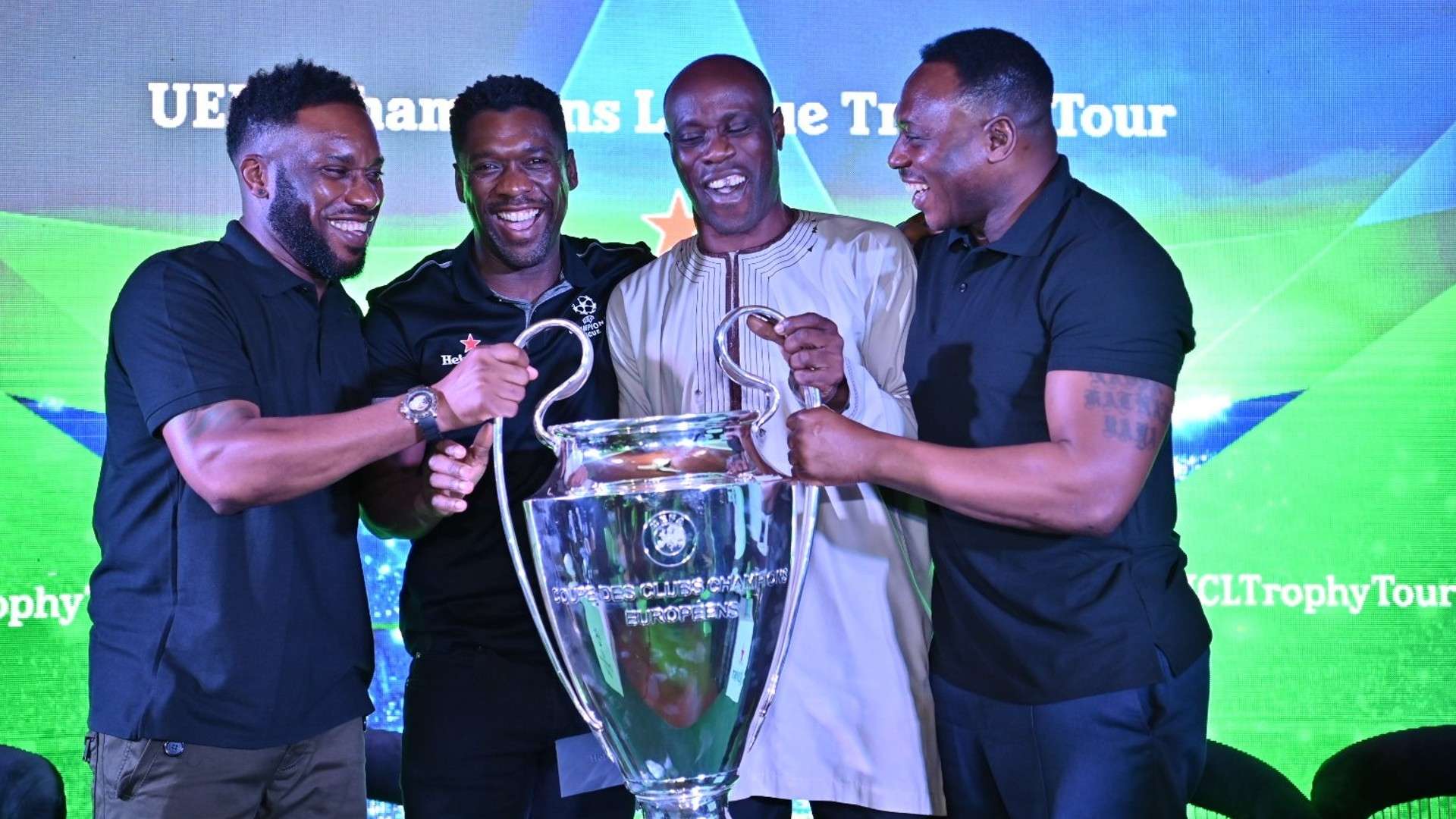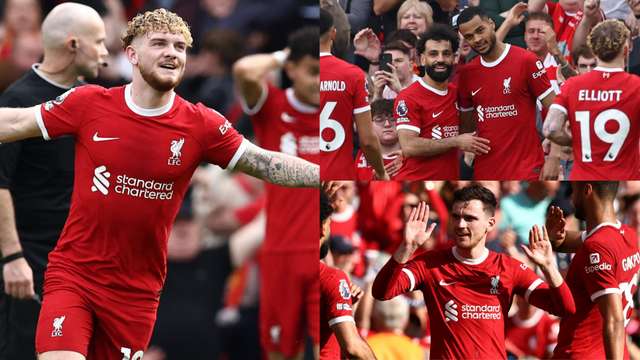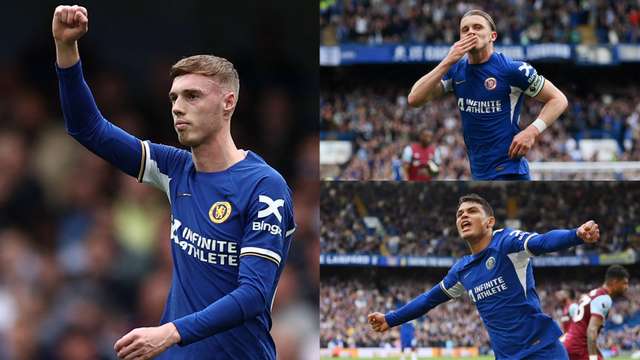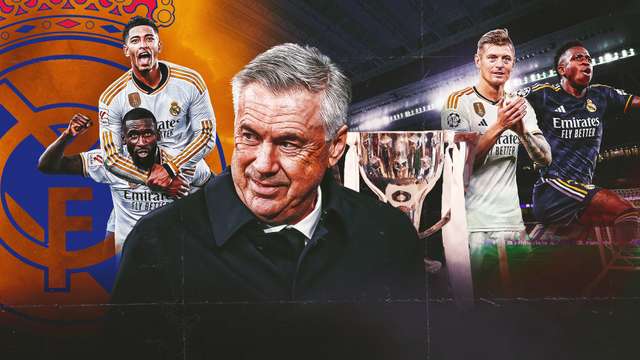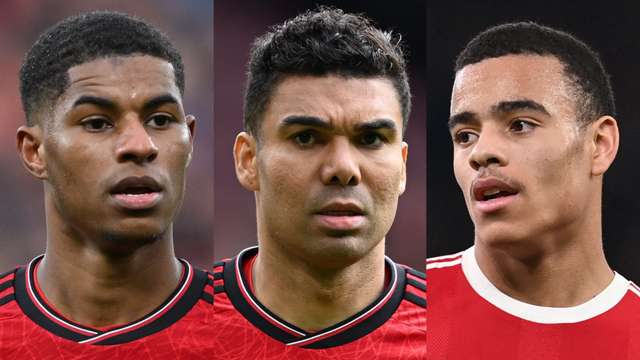Few things are more universally recognisable to football fans in Africa than the sound of that iconic, operatic anthem. Even fewer things still move them more to passionate expression like the competition it heralds.
And nothing represents those two like one of the most recognizable trophies in all of sports, the Uefa Champions League trophy.
Ol’ Big Ears - La Orejina in Spanish and La Coupe aux Grande Oreilles in French - occupies a special place in the life of every sports fan. It stands out as one of the most famous trophies, if not one of the most recognizable in all of sport. Next to the Fifa World Cup, it is the one trophy every football player dreams about, aspires to play in, create memories and win.
But football players are not the only ones with aspirations. While the fans cannot win it, they can join in creating, living and re-living memories year in and year out.
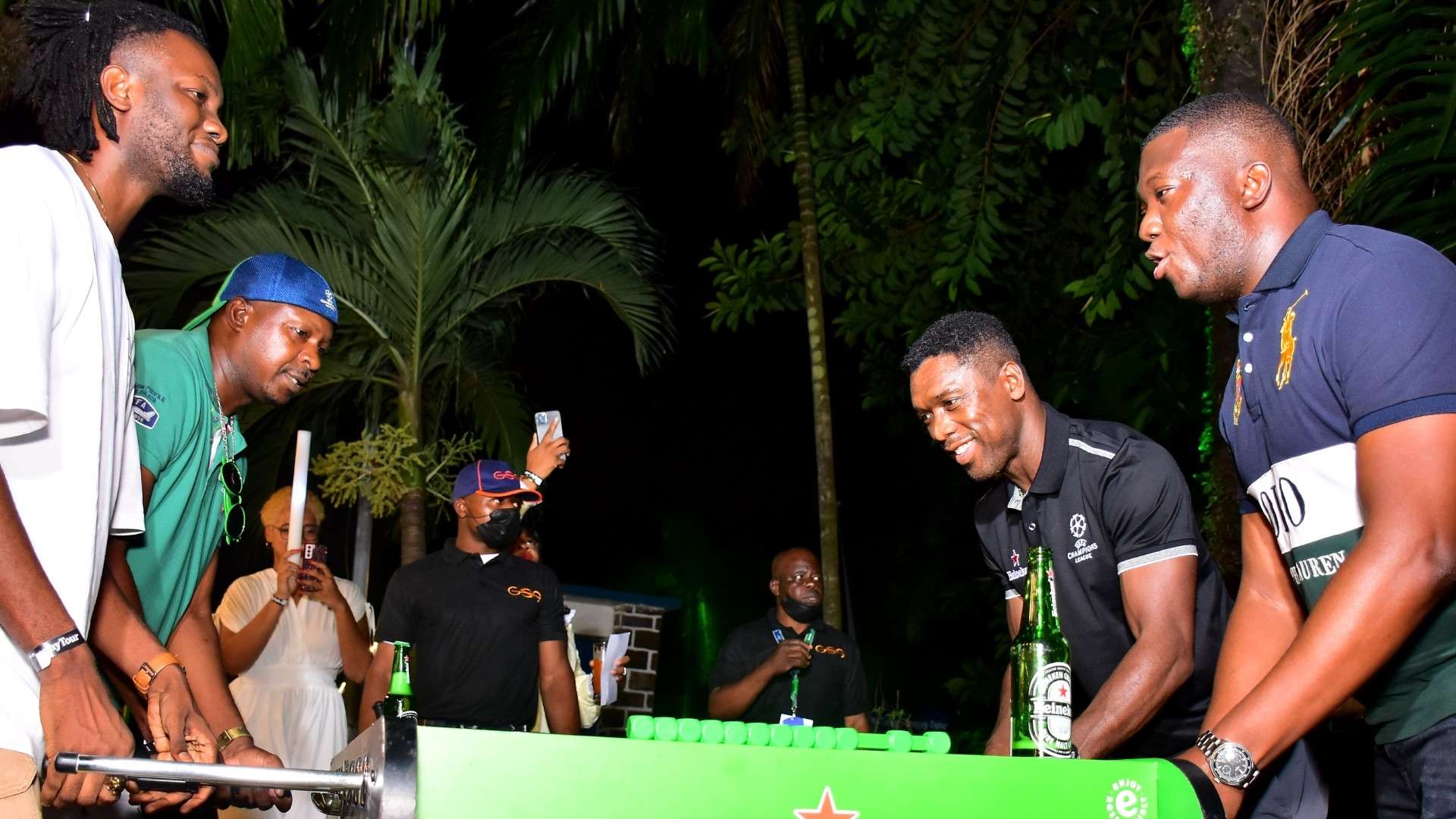 BHM
BHM
Just about every football fan has a Uefa Champions League memory. Like seeing Daniel Amokachi score the first-ever goal of the newly revamped competition in 1992, Nwankwo Kanu laying a slide-rule pass for Patrick Kluivert to help Ajax beat AC Milan and win the title in 1995, super-sub Lars Ricken putting a dagger to the hearts of Juventus fans in a stunning upset win in 1996, Ole Gunnar Solkjaer’s last-minute heroics for Manchester United against Bayern in 1999 or even Zinedine Zidane hitting an unbelievable volley to win it for serial winners Real Madrid.
Whether it was in the final, or during the course of the competition, the ultimate goal is the same, to mount the podium and put hands on La Orejina. Prior to Heineken’s coming, that exhilarating experience was unique only to winning teams.
To see and experience Ol’ Big Ears up close and personal, was a dream that the regular football fan in Africa would never have thought possible a mere 10 years ago.
All of that changed with Heineken’s entrance into the picture in 2005 when the Dutch brewer entered into a partnership with Uefa. Seven years later, the trophy was on its way to Africa, where, for the first time, any football fan could feel its magic from within touching distance.
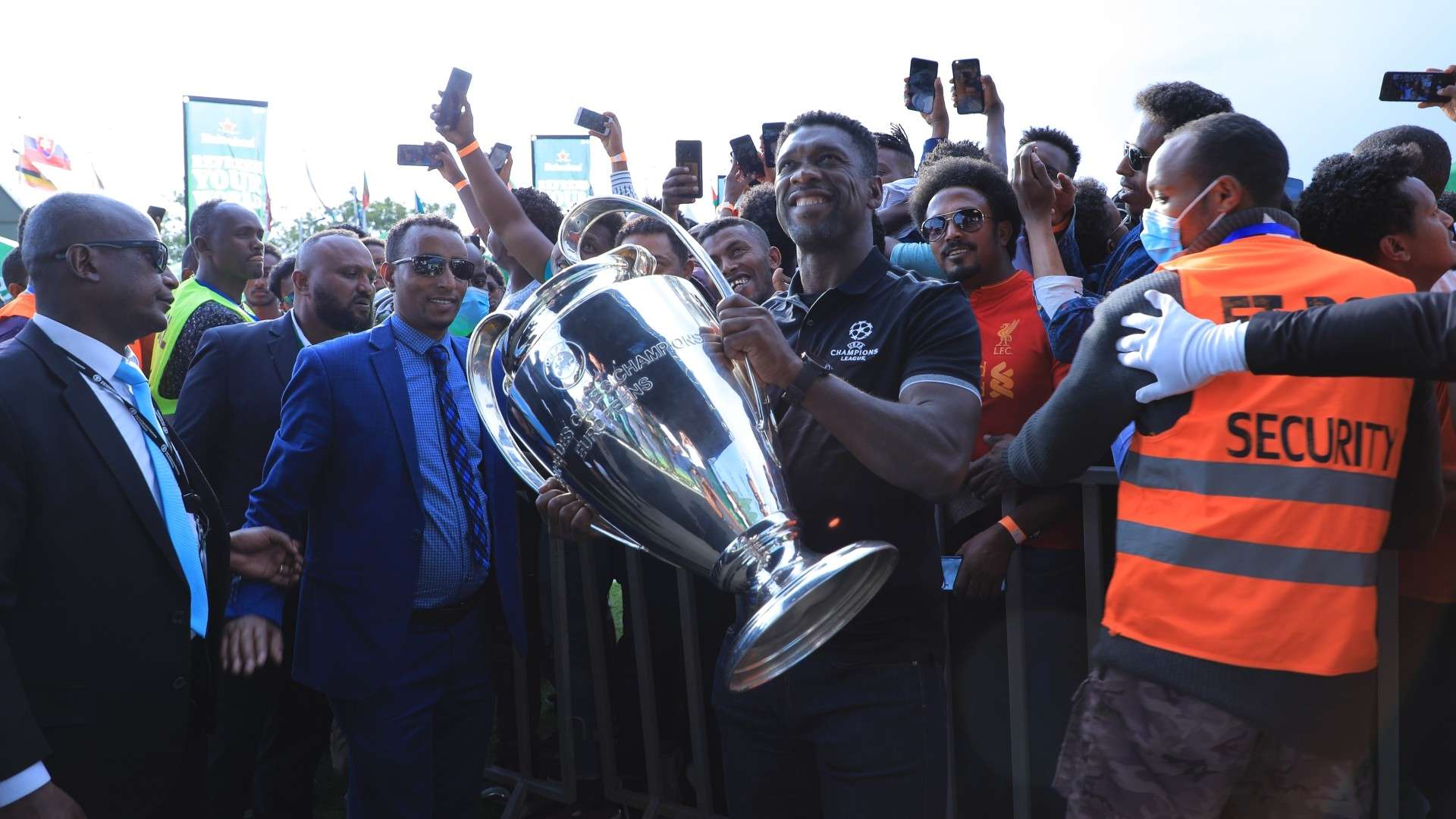 BHM
BHM
But it was not just the trophy. Accompanying it came a long and impressive array of superstars that many fans had only ever seen on television entertaining and weaving magic for them to enjoy; Celestine Babayaro, Austin Okocha, Christian Karembeu, Hernan Crespo, Ronaldinho, Alessandro Del Piero, Carles Puyol, Ryan Giggs, Sunday Oliseh, and Clarence Seedorf, among many.
"I got a picture with the trophy," Daniel, a policeman from Lagos, said after visiting the trophy. "I'm going to keep it for a lifetime. It's great to meet the likes of Sunday Oliseh as well. Nigerians are big fans of the Uefa Champions League."
His sentiment is representative of the majority of fans who throng the venue of the trophy tour, lining up not just to get a glimpse, but to take pictures with the trophy and their favourite stars.
It was not only the fans who were wowed by the experience. The players were too. Former World Player of the Year Ronaldinho Gaucho, who is recognized as one of the best to ever play the game, was stunned at the reception he received.
“Ethiopia is amazing! I never imagined receiving so much affection in my life! I have no words to thank you all. They are images of a lifetime dedicated to football, it was worth every minute!!!”
As was Del Piero, scorer of a cheeky backheel in that 1996 loss to Dortmund, after his visit to Cote d’Ivoire.
"The people were excited, funny and they took a lot of photos. It was a great moment. I said 'I've just been here for an hour and I already became a king'. These are the kinds of things you can have on these tours. It’s great because the people really take care of you. Especially in this country they really want the best for you.”
The Tour over the years has seen the trophy land in Nigeria, South Africa, Ghana, Cote d'Ivoire, Ethiopia, Mozambique, Rwanda and DRC, with 2022 the biggest tour yet.
Heineken’s Director of Global Sponsorships, Hans Erik Tuijt explains why: “Africa is a significant football region for good reasons. There are five billion football fans around the world, with Africa representing one of the largest fan bases across the globe. Undoubtedly, football is the most popular sport in Africa with an estimated 400 million Africans regularly tuning in to watch the UCL every season. For Heineken, the continent is also one of our largest markets accounting for some of the highest growth for the brand, even during the Covid-19 pandemic.”
“Uefa and Heineken, therefore, partnered to take the prestigious Uefa Champions League (UCL) trophy on a tour of Africa with one objective - to inspire a new generation of African football fans and as appreciation of their love for Uefa Champions League and Heineken,” he added.
Beyond the Trophy Tour, Heineken had already made inroads to develop and deepen the connection with fans through the most premium viewing experience for football fans: the Heineken House.
It was an experience which set the bar long before it was a thing. Invitations to the Heineken House on Champions League nights were the most sought after and have remained so, and exemplifies the commitment to fuel the passion of the fans. But on a more significant, if less known level, Heineken was changing lives through that experience.
Janet, now a wife and mother of two, says working at the Heineken House helped her pay her way through school.
“Being one of the hostesses at the Heineken House was the job that most young girls wanted the most. It was for the best of the best and that job helped me pay my fees at Unilag.”
For Femi, who now owns his own business, he started out interning with the production company that produced content for the Heineken House.
“That experience helped me develop as a content producer and I bought my first camera from what I earned in my time at the Heineken House.”
These two are among the millions of Africans who have been directly engaged in UCL activities in the 17 years of Heineken’s partnership with Uefa. These activities have helped to develop the sport, engaging Africa’s young population (which makes up about 70 per cent of its total population) in a bid to discover new talent and develop the economy. The company’s efforts over these years have led to a boost in football and other related activities and created employment, directly and indirectly for thousands of young people.
For the 2021/2022 Uefa Champions League season alone, Heineken’s Africa-wide trophy tour had stops in Nigeria, Ethiopia, Mozambique and DRC and activations in Rwanda and Congo Brazzaville. All of these, alongside unique experiences with consumers, photo sessions with the UCL trophy and football legends, UCL Quarter-finals Match viewing events, media visits and press conferences, all reached 50,000 Africans directly and an estimated 10 million through the media.
But that is not all.
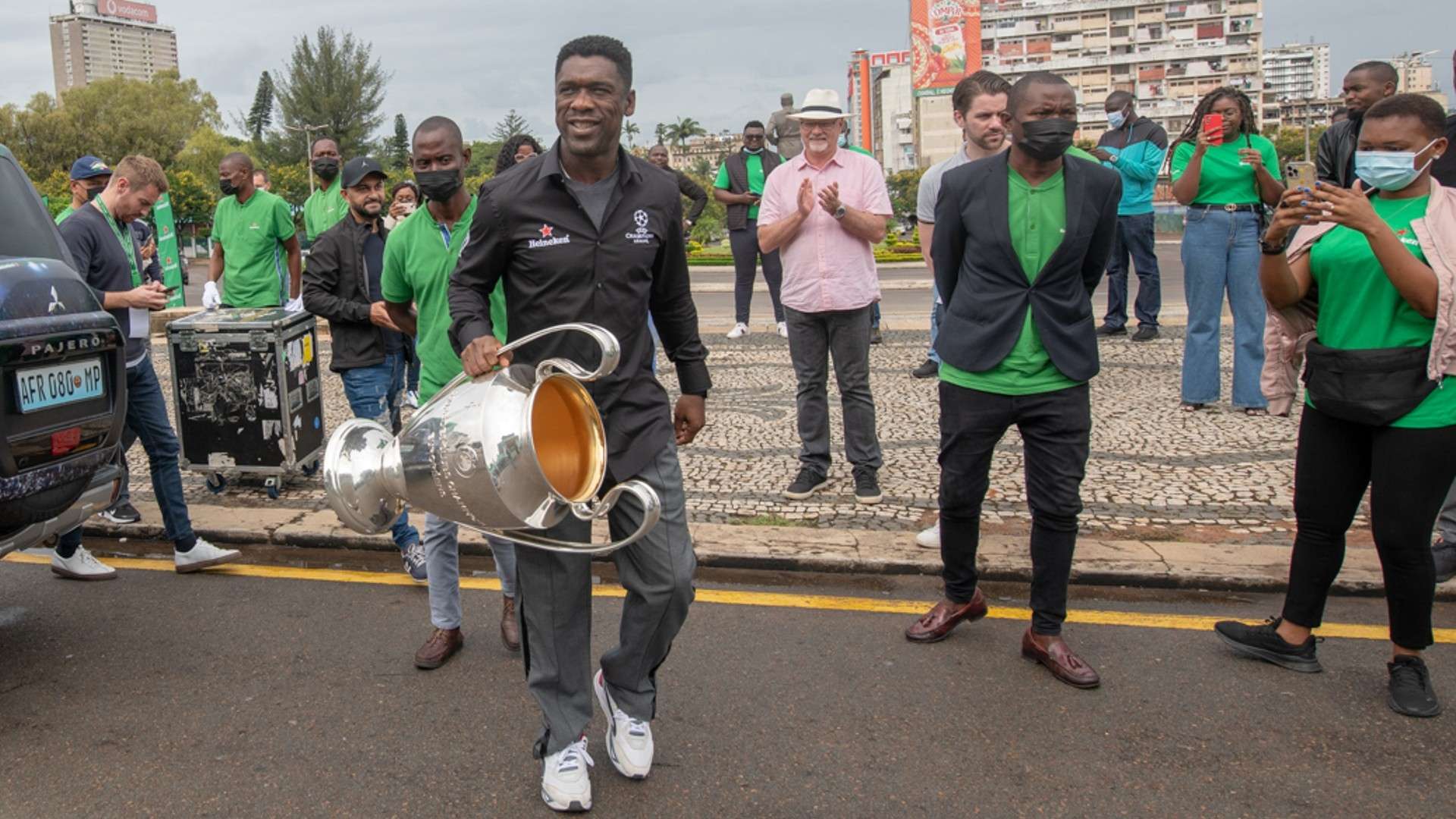 BHM
BHM
With investments worth over $250 million in the last seven years, Heineken has created job opportunities and avenues for young Africans to express their interests in sports, movies and fashion through sponsorships of global franchises like the Uefa Champions League, Formula 1, James Bond and the Lagos Fashion Week while building networks and enjoying shared experiences.
All of these go to show that Heineken’s commitment to the continent and its people is more than just skin deep. In fact, it is very much a part of the fabric of the continent, as a brand which has always believed and invested in Africa. The company’s oldest brewery - in Bralima, Kinshasa - is 99 years old. And new operations continue in new markets like Mozambique.
It is perhaps no surprise that Heineken’s commitment to and success in Africa has contributed to other global brands now beginning to join in by making investments in the region and leveraging the opportunities the continent presents.
But if there is one thing that history tells us, it is that Heineken will continue to lead the way not just in engaging the huge youth population of the continent and their passion for football and other sports but also in empowering that population to create and take advantage of their own creativity.
BY: Colin Udoh

